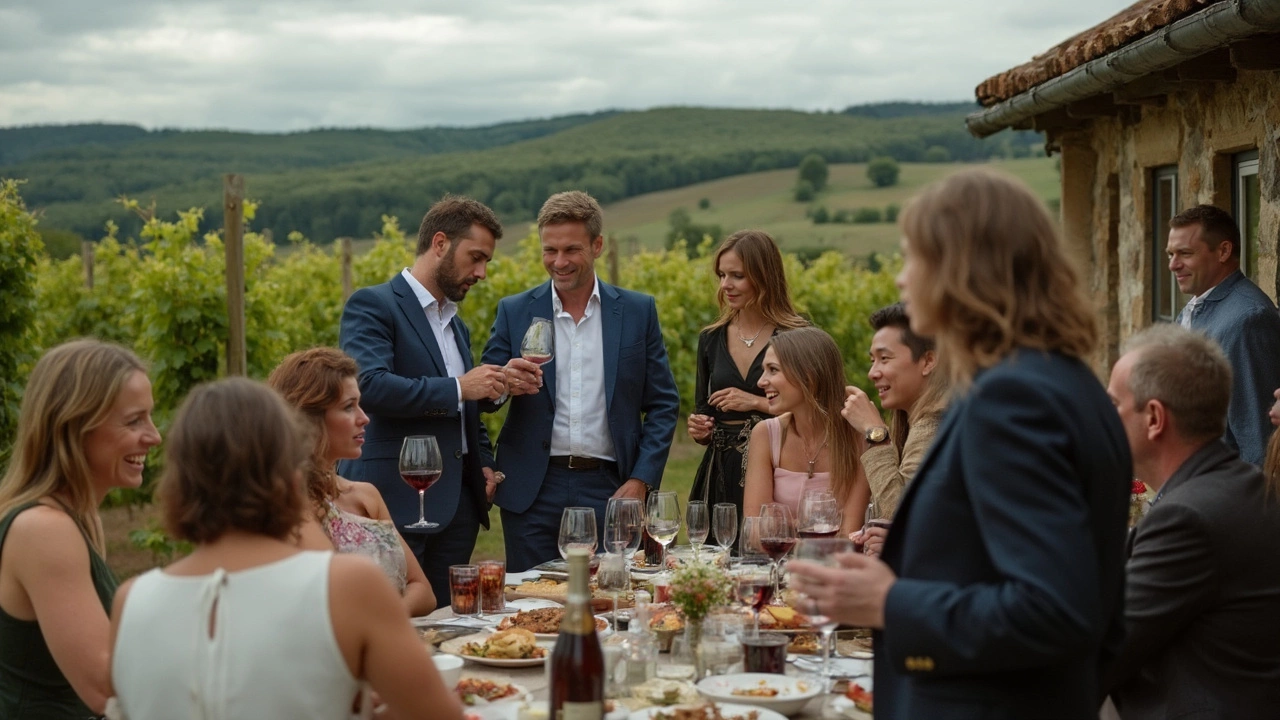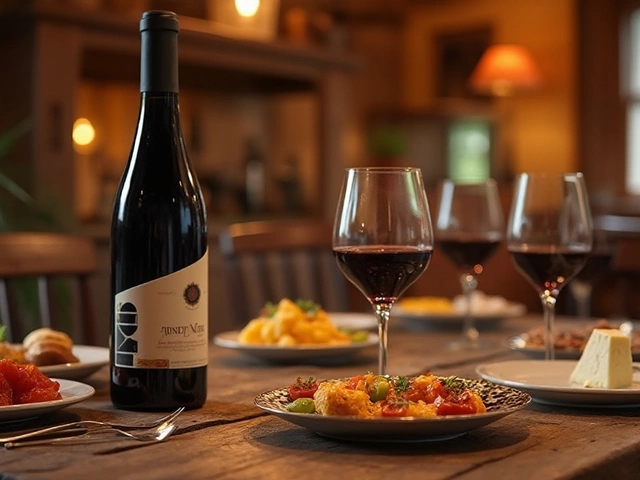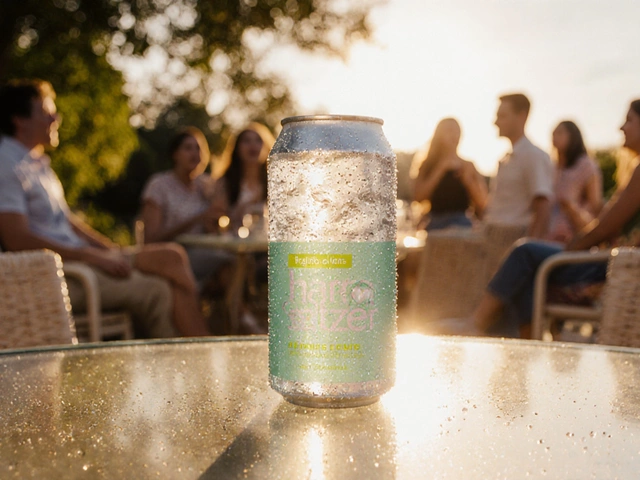Did you know that wearing the wrong cologne or even munching on a humble Tic Tac can totally destroy the way you taste wine? Most people planning their first or even fifth tasting have no clue that what you do right before can either amp up or wreck your whole experience. I learned that lesson fast during an anniversary trip in Napa—let’s just say my breakfast burrito had a longer finish than the Chardonnay.
Common Pre-Wine Tasting Slip-Ups That Wreck Flavor
Smells, tastes, and even your mood can play a huge role in how much you enjoy wine. It isn’t just about what’s in the glass—your taste buds are surprisingly easy to fool. Did you ever walk into a vineyard and right away felt like you had a big “X” on your back? That happened to me, all because my deodorant was a little too eager. Why so strict? Well, most wine experts say that over 75% of what we experience as “taste” is actually scent, and strong personal products can mask flavors.
If you want an honest tasting, don’t brush your teeth in the hour before you go. I know, it sounds like bad dad advice, but toothpaste has powerful flavors and chemicals like sodium lauryl sulfate, which makes your mouth super-sensitive. Your buds might go numb—or worse, exaggerate tannins so everything tastes bitter. The same goes for mints, gums, and cough drops. Even a little mouthwash can turn a crisp sauvignon blanc sour. Here’s a quick list of flavor killers:
- Chewing gum or mints (especially menthol flavor)
- Smoking (cigarettes, cigars, or vapes—tough luck)
- Heavy lipstick or lip balm (yep, both men and women can mess this up)
- Cologne, perfume, or scented lotion
- Spicy foods, garlic, onions, and coffee
Breakfast matters, too. If you show up hungry, every wine will taste more acidic, and you’ll get tipsy fast. If you stuff yourself with a loaded omelet, you numb your taste buds and mix in weird flavors for hours. A study from UC Davis’ wine research team found that people who ate plain yogurt before tasting wine rated it noticeably less bitter, while those who ate sausage and eggs said the same wine was almost undrinkable. Small bagel? Yes. Extra salsa? Save for later.
Let’s not forget about medication. Some allergy drugs, like antihistamines, and certain antibiotics can dry out your mouth or leave a lingering metallic tang. Bring water, but don’t drown yourself—too much H2O can dilute saliva and weaken your taste. Hydration is great, just keep the sips small and steady.
The bottom line: small steps before the tasting keep your mouth fresh but neutral. That way, every swirl and sniff gives you the cleanest read on the wine in your glass. Nobody wants to miss the floral notes of a pinot noir because of a rogue coffee aftertaste.
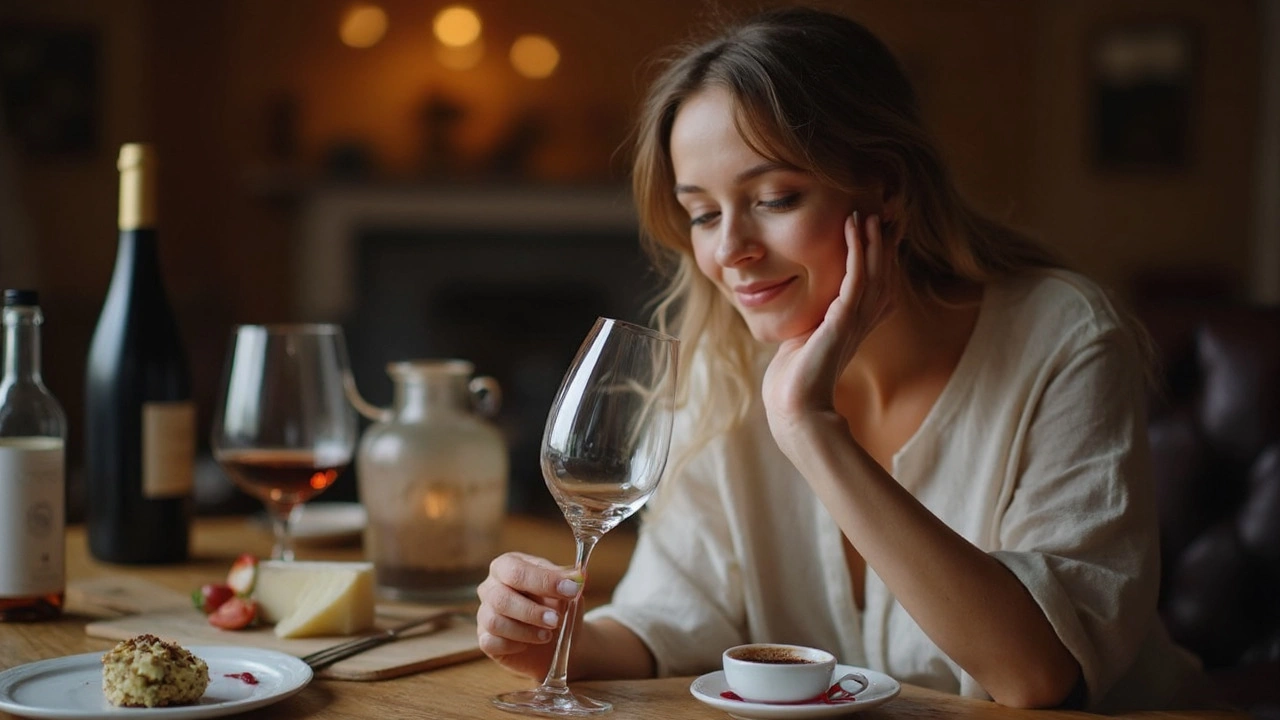
How Smells, Foods, and Stress Play With Your Palate
Your nose is wired straight to your brain’s memory center, so even a whiff of someone else’s scented shampoo can sabotage your next pour. Some winemakers won’t even allow scented sunblock at tastings. You may think this is overkill, but think about last time you caught a whiff of bacon from the kitchen—there’s no way you’d focus on citrus undertones with that in the air.
One major wine festival in Sonoma actually posts signs: “NO PERFUME ZONE – NO EXCEPTIONS.” Why so strict? Aromas in wine are delicate. Perfume, aftershave, and some deodorants contain essential oils that linger even after a rinse. And the science supports it—a series of blind studies showed that ambient scents cut expert wine tasters’ accuracy by 18%. Think about that next time you grab your favorite cologne out of habit.
Foods are another blind spot. Spicy meals bump up how much alcohol you actually taste, making reds taste hot and whites flat. Ever noticed how a spicy burrito leaves you rushing for a drink, only to find it tastes totally bland? The same thing happens with wine. Salt, on the other hand, can either dull bitterness or make tannins taste harsher. There’s even a table sommeliers use to avoid disaster foods before wine, which looks like this:
| Food | Common Effect on Wine Tasting |
|---|---|
| Spicy Peppers | Heightens alcohol, masks fruit |
| Garlic & Onions | Leaves lingering aftertaste, mutes wine aroma |
| Chocolate | Shifts sweetness perception |
| Coffee | Makes wine seem bitter or acidic |
| Fried/Fatty Foods | Coats palate, dulls flavor |
I once made the mistake of scarfing down a plate of greasy fries before a wine tour outside Paris. Not only did the reds taste watered down, but I kept burping up salt and oil. Not pretty. Kids might get away with sticky fingers, but you can’t reset your own mouth on the fly.
Mood and stress are sneakier saboteurs. If you rush into a winery after fighting traffic, your body goes into “fight or flight,” and your senses actually get dulled—nature didn’t care how pinot noir tasted when you were running from a bear, and guess what? Your brain still hasn’t updated. Taking five minutes to chill, walk slow, and breathe deeply can literally “open up” your taste buds. A friend told me she takes a two-minute walk before every tasting—no phone, no talking—a simple ritual, but she swears it sharpens her senses.
Your own sense of adventure plays a part, too. Being nervous, shy, or distracted makes you miss the subtle stuff. If you’re already bracing for embarrassment, you tune out the best flavors, just like missing half a joke because you’re focused on your own punchline.
So, here’s the trick: keep everything neutral—smell, taste, attitude. Go easy on rich snacks, skip the powerful soaps, and give yourself a moment to be present. This sets you up for a wine tasting that’s about the wine, not your breakfast or last argument in the car. The fewer distractions, the stronger your sense of discovery in every glass.
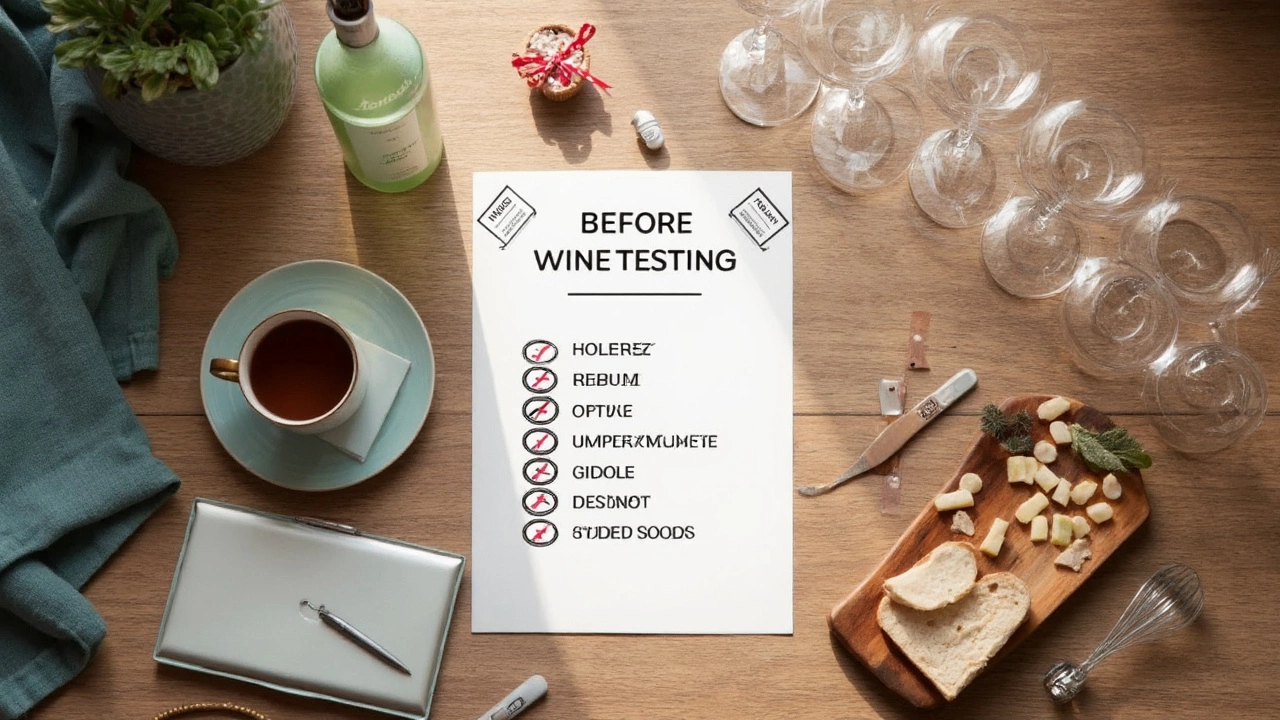
The Wine Tasting Do-Not-Do List: Real Tips for Real People
You don’t need laboratory conditions, but you do need a little prep. Some people panic, treating wine tasting like a pop quiz with flavors instead of facts. It doesn’t have to be tough: wine is for enjoyment, not intimidation. But there are legitimate troublemakers worth dodging, and they’re easy to fix if you know what to watch for.
First, skip brushing your teeth right before tasting—especially with whitening toothpaste or mouthwash that has alcohol. Your mouth needs a natural, not sterile, balance. And don’t reach for strong coffee or orange juice before you leave the house. If you crave caffeine, a mild black tea or a half-cup of weak brew is safer.
Water is your friend. Drink enough to stay hydrated, but don’t drown yourself or chug icy water immediately before tasting. Your mouth’s temperature should be close to room temperature for the most accurate sense of flavor. Too cold or too hot, and you’ll throw off the whole experience.
For breakfast or snacks, lean on subtle foods. A slice of plain baguette, unsweetened yogurt, light oatmeal—basically, things that won’t linger in your mouth. I always pocket raw almonds for the car ride—filling, but not flavorful enough to make a dent. Bananas are a hidden gem: some sommeliers use them to reset their palate, thanks to the neutral starch.
Here’s a pre-tasting checklist you can steal:
- Wake up with a glass of room-temperature water
- Eat a bland or lightly savory breakfast (hold the hot sauce and garlic powder)
- Skip aftershave, perfume, or scented lotion (body spray included)
- No gum, mints, or coffee thirty minutes before tasting
- Pass on heavy lipstick, gloss, or flavored chapstick
- Take a five-minute walk or do a few deep breaths before going inside
If you take allergy medication, try to do it a couple of hours before the event, so your mouth has time to re-balance. Always warn your host or sommelier if you’re on a new medication that could affect taste—these folks have seen it all, and they’ll give you honest tips for making the most of your visit.
This isn’t about looking fancy—it’s about giving yourself the best shot at finding something new to love. Wine isn’t just fermented grape juice; it’s a story, a science project, and a memory in the making. Don’t let rogue mints or perfume steal the show. Give yourself a clean slate, and let the wine speak for itself. That’s how you find out what you like, avoid headaches, and—if you’re like me—maybe dodge a few embarrassing stories for the kids at your next holiday dinner.
So next time you’re gearing up for a tasting, just remember: keep it clean, keep it chill, and save the big breakfast for after. Your taste buds—and your glass—will thank you.
